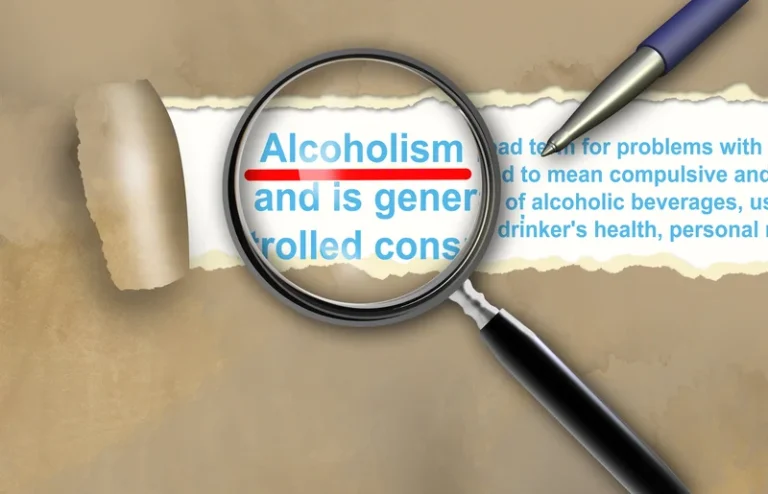Denial as an Alcoholism Symptom

Alcoholics do not often call themselves alcoholics, and try to deny problems associated with their drinking altogether. Denying drinking negatively affects one’s life is one of the first steps down the descent of alcoholism. Once honesty with oneself and loved ones regarding substance use is lost, it is near-inevitable to be grasped by the clutches of a full-blown addiction.
There are a number of common behaviors that alcoholics exhibit. It is important to take an honest view of oneself or your loved one to determine if behaviors masking alcoholism are present. These justifications or actions can keep an alcoholic denying their problem for years, some successfully hiding their condition for a very long time.
There is no need to wait for a rock bottom moment, look honestly at the situation surrounding yourself regarding alcohol and you should be able to determine what needs to be done.
Denial Develops Over Time
It takes time for an addiction to any substance to occur, and so too does the denial of any problem. Alcoholics will begin to exhibit patterns again and again that they will try to use in order to mask their issues at any cost, protecting the booze, believing life is not worth living without it.
When negative patterns of behavior turn to habits, it is easy for alcoholics to believe that drinking is the only thing that is good in their lives. All the stress of life is quelled, at least for a time, until inevitably they come back worse than before, and the alcoholic returns to drinking in order to manage. It is over time that people begin to claim there is no issue, and eventually, even if problems are monumental there will still be resistance to the truth.

Take back control of your life and start on the road to recovery now.
Justifications for Alcoholism
Alcoholics come up with many different ways to justify or conceal their drinking, such as blaming others for their actions, becoming defensive/dismissive regarding their drinking, or simply just hiding their drinking.
Though there are multiple ways to deny excessive alcohol use, the issues that come from them lead to a similar route, which is, negativity ascending into one’s life. Below are some recognizable behaviors to alcoholics, if these are noticed, perhaps it is time to take the proper steps to discuss the problem and find a solution.
Blaming Outside Influences
Alcoholics will often blame their drinking on factors outside of their control, taking a victim mentality and believing that drinking is the only proper response. When confronted with negative situations these people resort to drinking as a way to escape the stress created.
There will always be stressful situations that people need to overcome. Resorting to drinking is taking the easy way out. It is important to develop discipline and skills to deal with the stress of everyday life. Drinking because of how a situation presents itself to someone is never the answer.
Defensive Behavior
Often Alcoholics will be defensive about their drinking. When confronted about the amount they are drinking There are common phrases such as “I have not had that much” or “I can do what I want, I am not hurting anyone.”
When an alcoholic gets defensive about their drinking it can become difficult to reason. When evidence presented will not be accepted the best option is to diffuse the situation by not continually creating conflict. Recognize that it may take time to get past this defensive behavior, even when dealing with oneself.

Denying Alcohol Use
At times it is even possible to completely deny the use of any booze. Alcoholics will blame the smell around them on other substances such as mouth wash. Perhaps their slurring words are just because they are tired, their red eyes too. Denying drinking altogether is a sure sign of addiction.
Hiding Alcohol
When individuals are hiding their drinking from loved ones it is probably because they are doing too much of it. At first it feels normal to be drinking with people, but alcoholics will often drink in secret, hiding evidence from those in their lives.
When this behavior becomes more habitual, it is a sign of a rapid descent. The guilt associated with drinking, and perhaps just a subconscious realization at that, drives people to attempt to completely deny any existence of their drinking.
False Agreement
When alcoholics are in the depths of their deception they will at times make promises to themselves or others to change behaviors. There will be claims that, “I will be stopping soon, after this or that person’s party” or “I will cut back as soon as I am less stressed.” There is always going to be another stressful situation that may send one to drinking.
There will always be another pact made between the alcoholic and themselves or their enablers. Denying this and calling for honesty is the best route to have any sort of progress towards recovery.
Comparing
Alcoholics will often compare themselves to other people in their lives. By comparing their drinking patterns to others that are drinking worse than them, they try to alleviate the guilt associated with their drinking. When compared to these individuals, the alcoholic will often feel they are in the right, and that their drinking is not an issue.
Regardless of justifications or comparisons, the bottom line is when negative situations are occurring because of someone’s drinking, there needs to be action taken. When alcoholics refuse to change because of other people’s life decisions it is difficult to use any argument of reason to help them see the light.
Enabling
Unfortunately, when family, friends or any other loved one continually rescues an alcoholic from their own self destructive activities they are actually enabling, and not helping as would be intended. An alcoholic does not have to reach rock bottom to turn their life around, but unfortunately, this is what it takes at times.
No one wants to watch their loved ones fall into the dismal abyss of addiction, but until the addict figures out for themselves that change is necessary, there will be none.
Recognizing the signs of alcohol addiction early is key to potentially curb the familiar path towards addiction. When life is viewed honestly and lovingly by everyone involved in a given situation, there is bound to be a greater chance for a better quality of life.
Whenever someone enables an alcoholic to continue down a negative path, even with the best intentions, there will inevitably be more harm done than good. Understanding how to not enable is essential to assisting an alcoholic on the right path. Do not make excuses for alcoholics, cover for them, or help them drink There is nothing good that comes from these actions.

This can be a difficult journey, but you don’t have to go it alone. Let us be your guide and provide you the environment needed to regain control of your life and begin the path to recovery.
Determining Direction To Take
Deciding whether an individual has an issue with alcohol takes the ability to look honestly at the circumstances surrounding its use. Negative circumstances are bound to occur when an individual is attempting to conceal their alcohol dependence. People have to develop the courage to look at their lives honestly and see what steps need to be taken to improve them.
If seeking help for yourself or a loved one is a necessity, the sooner this is done the better. There is no time like now to be living the best life you can, not dependant on the illusionary help of alcohol. There is only this present moment, this precious moment, to truly live our lives. It is best to live to the fullest extent, completely in our faculties to enjoy every second.
If you or a loved one is struggling with addiction, reach out to one of us at ecosoberhouse.com today.




